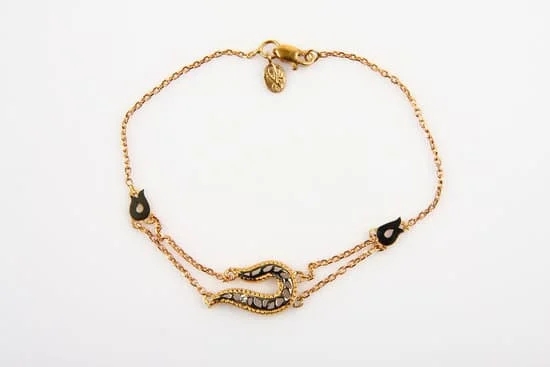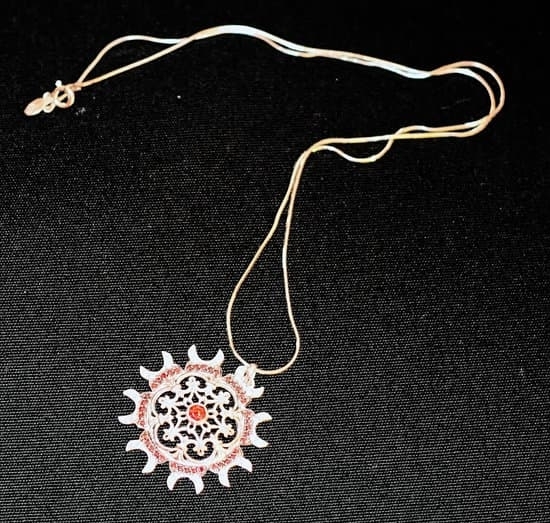Is it okay to use Windex on fine jewelry? Many people may be tempted to use this household cleaning product to clean their precious accessories, but it’s important to understand the potential risks and damage it can cause. In this article, we will explore the dangers of using Windex on fine jewelry and why it’s not recommended for cleaning these valuable items.
Using Windex on fine jewelry can have detrimental effects on precious gemstones such as diamonds, rubies, and sapphires. The chemicals in Windex can cause discoloration, cloudiness, and even scratches on the surface of these gemstones, diminishing their brilliance and overall beauty. It’s crucial to understand how Windex can impact the quality and appearance of your gemstone jewelry before using it as a cleaning solution.
In addition to its effects on gemstones, Windex can also cause damage to gold and silver jewelry. The harsh chemicals in Windex can tarnish these metals, leading to a dull and lackluster appearance. Understanding how Windex can affect different types of fine jewelry is essential for preserving their quality and longevity. So what are the alternative options for safely cleaning your fine jewelry at home?
How Windex Can Cause Damage to Precious Gemstones
Fine jewelry often contains precious gemstones such as diamonds, emeralds, sapphires, and rubies. While Windex is a popular household cleaner for glass and hard surfaces, it can cause significant damage to these gemstones.
The ammonia and other harsh chemicals in Windex can strip away the protective coatings on these stones, leading to a loss of luster and brilliance. In addition, prolonged exposure to Windex can also weaken the settings that hold the gemstones in place, increasing the risk of them becoming loose or falling out.
Diamonds, one of the hardest substances on Earth, are not exempt from potential damage when exposed to Windex. The chemicals in Windex can dull the sparkle of a diamond by leaving behind residue that is difficult to remove. Furthermore, certain colored gemstones such as emeralds and opals are especially susceptible to damage from chemical cleaners like Windex because they are more porous and can absorb the liquid, leading to discoloration or cracks.
It is important for anyone who owns fine jewelry with precious gemstones to be aware of the potential dangers of using Windex for cleaning purposes. Seeking alternative methods for cleaning and maintaining jewelry can help preserve its beauty and value for years to come.
| Gemstone | Potential Damage |
|---|---|
| Diamonds | Loss of sparkle and luster |
| Colored Gemstones (e.g. emeralds, opals) | Discoloration or cracks |
The Effects of Windex on Gold and Silver Jewelry
When it comes to cleaning gold and silver jewelry, using Windex is not recommended. The ammonia and other harsh chemicals in Windex can actually cause damage to these precious metals. Gold is a soft metal and can easily be scratched or discolored when exposed to harsh cleaning agents like Windex. Silver jewelry, on the other hand, can tarnish and lose its luster when cleaned with Windex.
In addition to the potential damage to the metals themselves, using Windex on gold and silver jewelry can also have negative effects on any gemstones that are set within the pieces. Gemstones like diamonds, emeralds, sapphires, and rubies can be sensitive to ammonia and other chemicals found in household cleaners. These chemicals can cause discoloration or cloudiness to develop in the stones over time.
Instead of using Windex, there are safer alternatives for cleaning gold and silver jewelry. Mixing mild dish soap with warm water and gently rubbing the jewelry with a soft brush or cloth is a much safer option. There are also specially formulated jewelry cleaners available on the market specifically designed for use with fine jewelry. It is essential to take extra care when cleaning fine jewelry at home to prevent any unintentional damage.
| Windex Cleaning Method | Alternative Cleaning Method |
|---|---|
| Potential Damage to Metals | Gentle Cleaning without Harsh Chemicals |
| Potential Damage to Gemstones | Mild Dish Soap and Warm Water Solution |
| Discoloration and Tarnishing | Specially Formulated Jewelry Cleaners |
Alternatives to Windex for Cleaning Fine Jewelry
When it comes to cleaning fine jewelry, using the right products is crucial to maintaining its beauty and integrity. While Windex may be an effective cleaner for windows and other household surfaces, it is not recommended for use on fine jewelry. The harsh chemicals and ammonia found in Windex can cause irreversible damage to precious gemstones and metals. So what are some safe alternatives to Windex for cleaning your fine jewelry?
Here are some safer alternatives to Windex for cleaning fine jewelry:
1. Mild Dish Soap: A gentle dish soap mixed with warm water is a safe and effective way to clean most types of jewelry. Simply soak the jewelry in the soapy water mixture for a few minutes, then use a soft-bristled toothbrush to gently scrub away any dirt or residue.
2. Baking Soda Paste: Create a paste using baking soda and water, then apply it to your jewelry with a soft cloth or toothbrush. This method is particularly effective for removing tarnish from silver jewelry.
3. Jewelry Cleaning Solution: There are specially formulated jewelry cleaning solutions available at most jewelry stores or online. These solutions are designed to safely clean and restore the luster of fine jewelry without causing any damage.
4. Professional Ultrasonic Cleaner: If you have a large collection of fine jewelry or want a more thorough clean, consider investing in a professional ultrasonic cleaner. These machines use sound waves and cleaning solution to remove dirt and grime from even the tiniest crevices of your jewelry pieces.
Ultimately, using Windex on fine jewelry should be avoided at all costs due to its potential for causing irreversible damage.
Tips for Safely Cleaning Fine Jewelry at Home
When it comes to keeping your fine jewelry clean at home, it’s important to avoid using harsh chemicals such as Windex. While Windex is great for cleaning windows and mirrors, it can actually cause damage to your precious gems and metals. Here are some tips for safely cleaning your fine jewelry at home without the use of Windex:
1. Use a mild detergent and warm water: One of the safest ways to clean your fine jewelry at home is by using a mild detergent, such as dish soap, and warm water. Create a soapy solution and let your jewelry soak for a few minutes before using a soft brush to gently remove any dirt or grime.
2. Invest in a jewelry polishing cloth: A jewelry polishing cloth is an easy and effective way to keep your metals looking shiny and new. Simply rub the cloth over your gold, silver, or platinum jewelry to remove any tarnish or fingerprints.
3. Be cautious with gemstones: When cleaning gemstone jewelry, it’s important to be cautious with the type of cleaning solution you use. Some gemstones are more delicate than others and may require specific care instructions. For example, pearls should never come into contact with harsh chemicals or even water.
By following these simple tips, you can safely clean your fine jewelry at home without causing any damage. Avoiding the use of Windex and other harsh chemicals will help ensure that your precious pieces remain beautiful for years to come.
Is it okay to use Windex on fine jewelry? No. Avoid using Windex on your fine jewelry as it can cause damage to both the metals and gemstones within the pieces. Stick to gentle cleaning methods such as using mild detergent and warm water or investing in a specialized jewelry polishing cloth.
The Importance of Regular Maintenance for Fine Jewelry
Fine jewelry is a significant investment, and it requires regular maintenance to keep it looking its best. Without proper care, fine jewelry can become dull and tarnished over time. Regular maintenance is crucial in preserving the beauty and quality of your precious pieces.
Preventing Buildup and Tarnish
One of the main reasons why regular maintenance is essential for fine jewelry is to prevent the buildup of dirt, oil, and other substances that can cause tarnishing. When left untreated, these substances can make your jewelry lose its luster and shine. By cleaning your jewelry regularly, you can remove any buildup and prevent tarnish from forming.
Checking for Loose Stones or Damage
Regular maintenance also gives you the opportunity to check for loose stones or any signs of damage. When worn frequently, fine jewelry may endure wear and tear that could loosen stones or weaken clasps. By inspecting your pieces regularly, you can catch any issues early on and address them before they worsen.
Preserving the Longevity of Your Jewelry
Moreover, regular maintenance plays a crucial role in preserving the longevity of your fine jewelry. By keeping them clean and inspecting them often, you can ensure that they remain in good condition for years to come. This not only maintains their aesthetic appeal but also protects their value as precious items.
Professional Cleaning and Maintenance for Fine Jewelry
Taking your fine jewelry to a professional for cleaning and maintenance is crucial in ensuring its longevity and preserving its beauty. Professional jewelers have the expertise, specialized tools, and knowledge to properly clean and maintain fine jewelry without causing any damage.
Benefits of Professional Cleaning
One of the main benefits of having your fine jewelry professionally cleaned is that jewelers use gentle yet effective cleaning solutions that are specifically designed for different types of precious metals and gemstones. This ensures that your jewelry is thoroughly cleaned without risking any damage or discoloration.
Professional jewelers also have the necessary equipment to thoroughly clean all the intricate details of your jewelry, including settings, prongs, and under-mounted gemstones. Additionally, they can inspect your jewelry for any signs of damage or wear and tear, allowing them to address any potential issues before they worsen.
Professional Maintenance Services
In addition to cleaning, professional jewelers offer maintenance services such as prong tightening, stone resetting, and polishing to keep your fine jewelry looking its best. These services can help prevent loss or damage to gemstones and maintain the structural integrity of your jewelry.
Ultimately, entrusting the care of your fine jewelry to a professional jeweler is essential in keeping it in top condition. While it may be tempting to try DIY cleaning methods at home, professional cleaning and maintenance provide peace of mind knowing that your precious pieces are being cared for by experts in the field.
Conclusion
In conclusion, while Windex may be a convenient household cleaning solution for many surfaces, it is not recommended for use on fine jewelry. The ammonia and other chemicals in Windex can cause damage to precious gemstones, including diamonds, emeralds, and sapphires. Additionally, gold and silver jewelry can tarnish or become discolored when exposed to Windex.
It is important for individuals to be aware of the potential dangers of using Windex on their fine jewelry and seek out safer alternatives. Simple solutions such as mild soap and water, or specialized jewelry cleaning solutions that are specifically formulated for use on precious metals and gemstones should be used instead. These alternatives can effectively clean and maintain the beauty of fine jewelry without risking damage.
Regular maintenance and professional cleaning are also essential for preserving the appearance and value of fine jewelry. By following these tips, individuals can ensure that their beloved pieces remain sparkling and beautiful for years to come without putting them at risk of damage from household cleaners like Windex.
Frequently Asked Questions
Can I Clean My Jewelry With Windex?
It is not recommended to clean jewelry with Windex. While it may be effective for cleaning glass and other surfaces, the chemicals in Windex can be too harsh for delicate gemstones and metals commonly found in jewelry. Instead, consider using a mild soap or specialized jewelry cleaner.
What Can You Use to Clean Fine Jewelry?
To clean fine jewelry, you can use a gentle jewelry cleaner specifically formulated for the type of metal and gemstones in your pieces. These cleaners typically come in liquid or foam form and are designed to safely remove dirt, oil, and grime without damaging the jewelry.
Another option is to soak the jewelry in warm water with a few drops of mild dish soap and gently scrub with a soft brush.
Is Glass Cleaner Safe for Jewelry?
Glass cleaner is not considered safe for cleaning jewelry. The chemicals in glass cleaner can be too abrasive for precious metals and gemstones, potentially causing damage or discoloration. It is best to avoid using household glass cleaners on jewelry and stick to gentle cleaners specifically designed for this purpose.

Welcome to my jewelry blog! My name is Sarah and I am the owner of this blog.
I love making jewelry and sharing my creations with others.
So whether you’re someone who loves wearing jewelry yourself or simply enjoys learning about it, be sure to check out my blog for insightful posts on everything related to this exciting topic!





